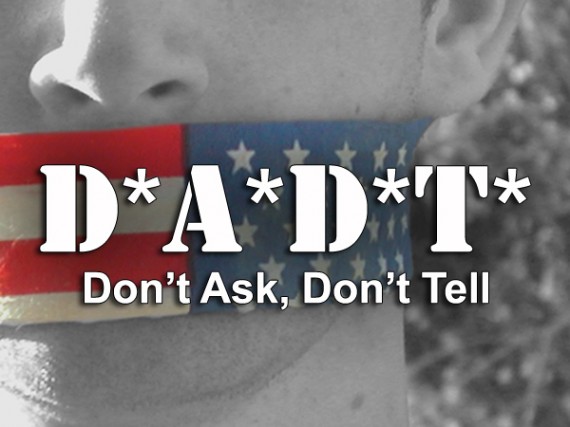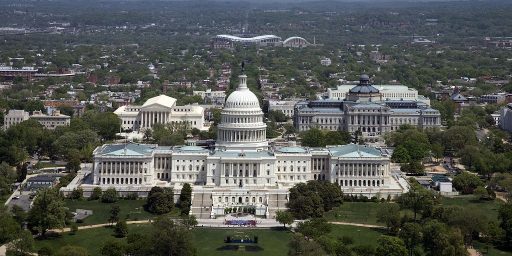Majority Of Active Duty Military Don’t Oppose Gays In Military
One of the last arguments against allowing gay men and women to serve openly in the military -- that active duty military would be unable to serve alongside them -- appears to have no empirical support.
While the Pentagon’s full report on the implementation of a repeal of the military’s Don’t Ask, Don’t Tell policy won’t be out until December, a new report indicates that one of its initial findings is that there is little opposition to repeal within the military:
A majority of active-duty and reserve service members surveyed by the Defense Department would not object to serving and living alongside openly gay troops, according to multiple people familiar with the findings.
The survey’s results are expected to be included in a Pentagon report, due to President Obama on Dec. 1, regarding how the military would end enforcement of the “don’t ask, don’t tell” law that bans openly gay men and lesbians from serving in uniform.
Some troops surveyed – but not a majority – objected strongly to the idea of serving with gays and said they would quit the military if the policy changed, said the sources, who spoke on the condition of anonymity because they were not authorized to publicly share details of the survey.
Assuming these numbers hold up, this would seem to undercut one of the final arguments from the right against repealing Don’t Ask, Don’t Tell. The big unknown is what priority repeal will be given in a 112th Congress that will be dominated, if not fully controlled by Republicans elected to office on mostly an economic message.
The survey is also noteworthy in that it seems to be yet another example of the extent to which public attitudes toward homosexuality and homosexuals have changed in the nearly two decades since the gays in the military controversy first erupted under the Clinton Administration. The change itself is not surprising, but the pace at which is seems to have occurred certainly is. I think it’s fair to say, for example, that public attitudes on racial issues took far longer to change from the time that the Civil Rights movement started in the 1950s, and that when Harry Truman ordered the military services integrated in 1948, he was going against public opinion on the subject.







this has been up for several hours. The lack of comments seems to indicate the general populace of veiwers here agree with our soldiers, sailors, airmen and marines.
> The big unknown is what priority repeal will be given in a 112th Congress
Do you really consider this to be an unknown? Cause I think I know…
I think we need to be a little more careful with our word choice on this. A “majority” does not object to serving with openly homosexual soldiers. I guess some people might have been shocked by this but I would have been shocked if the numbers had returned otherwise.
But remember, “majority” = more than half.
So how we get from “majority” to “there is little opposition to repeal” I have to wonder. The article linked doesn’t appear to use that phrase or anything close to it. Even if one military member in five vehemently opposes repeal, that is still very substantial opposition indeed. In truth, the percentage is probably far greater than that.
FTR, I am strongly in favor of repeal.
Well, first off, no one ever really believes these “surveys” are confidential so I take the assertion with a grain of salt. Generally you decline to answer or answer to keep your career. That’d go double with this administration’s demonstrated tendency toward retaliation. But even if we go with majority, say a 90/10 split, well losing 10 percent is called decimation and is generally considered to make a unit ineffective.
Bad enough if 10% evenly spread leave but if concentrated in certain areas, it could deal a serious blow to national security. if concentrated in the gunfighters, very bad. If concentrated in the mid-grade combat arms, very, very bad. The losses can’t just be replaced, it takes years to grow a competent mid-grade officer or non-comm who can lead troops in the field.
how would you lose 10%? Just b/c service members do not like a policy does not mean they will just quit. Some may leave and others will replace them. happens all the time and will happen again in the future. I know plenty of people who feel strongly for and against the policy. We are all active duty and we will continue to serve no matter what policy comes out. I personally am for getting rid of the law. I have a good friend who thinks it would be terrible to get rid of it. With that said, I highly doubt congress will change the law anytime soon after the 2 nov election.